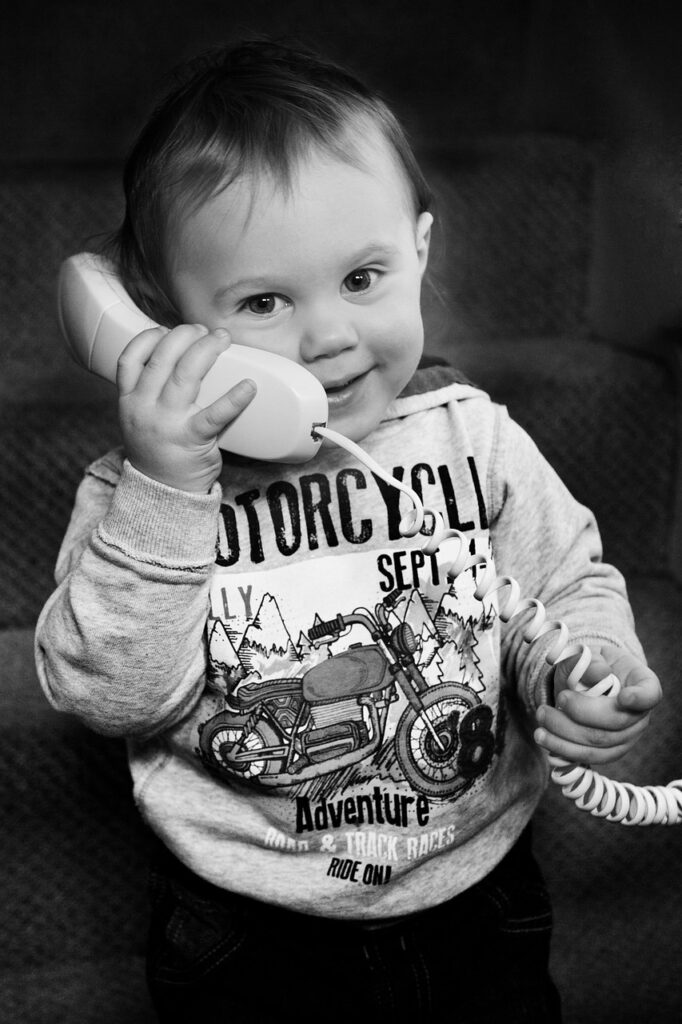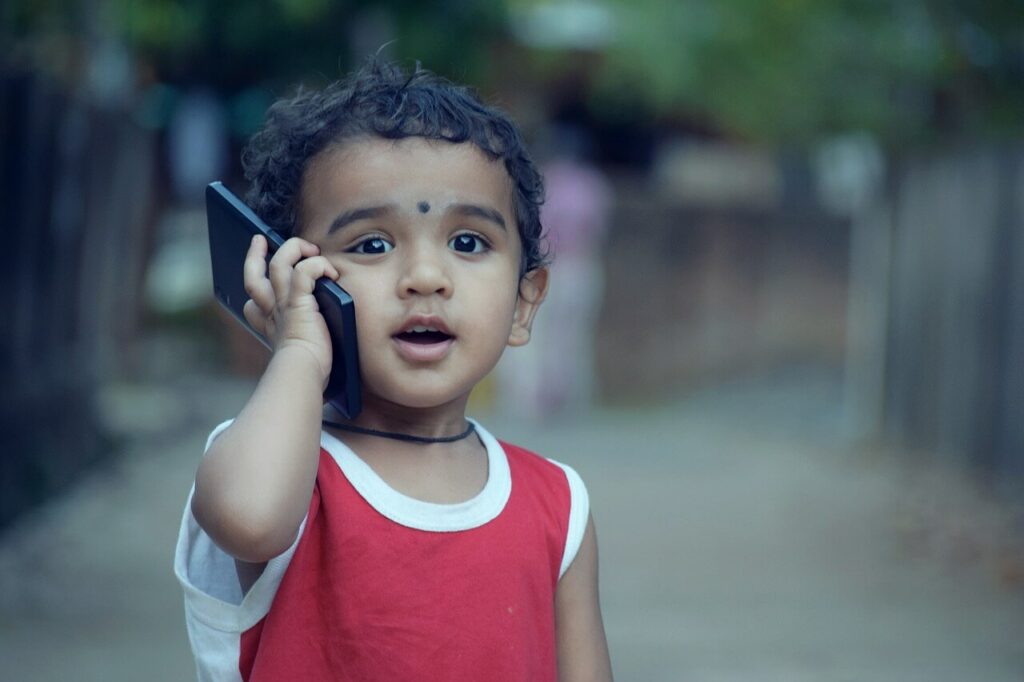Deciding at what age to give kids a cell phone and there is an increasing number of children who have developed gaming addictions, adult world, and who use social media as a weapon to bully others. It stunts brain development and is rather socially isolating children. We have received a lot of questions including at what age should kids have a cell phone, can kids play live games on smartphones?.
Psychologist Catherine Steiner-Adair, the author of The Big Disconnect, says the real question is not about the “right” age or about the phone itself, but about whether your child is developmentally ready to have “full access to the adult world,” and whether you’ve laid the groundwork to prepare them for healthy and responsible device use.
Why Kids Should Have A Cell Phone? Ideas to Consider!!
“You know your child is ready for a cell phone, and playing games on it. When you’ve talked about responsible use and modeled the behavior on your own device,” Says Kerry Gallagher, a digital learning specialist at St. John’s Prep in Danvers, Massachusetts, and director of K-12 education at ConnectSafely.org. “If you haven’t done any of this work, then it might make sense to wait another year.”
Understand your family values.
Reflect on what’s important to you as a family. Are you a family that values technology and its innovative and connective powers? Do you value teaching empathy and kindness? Encouraging creativity? Instilling a sense of responsibility in your child?
Is eating dinner together as a family, uninterrupted, important to you? Determining your family values independently of the phone conversation can help shape how devices get used — not just for your kids, but for you, too. “This is about the quality and kind of childhood you want them to have, as an individual and as a family,” Steiner-Adair says.
Introducing responsible device use is another parenting duty today — like handing children a book or telling them how to eat healthily. Rather than run away from technology use, consider it an opportunity to educate your kids, demonstrate proper etiquette, and test out rules.
Talk about technology with your child.
Begin an ongoing conversation about how teachers use technology, how friends use it at school, and even how you use it. Ask questions about what your child enjoys about technology.
Is there a game or video that he likes? Find out why. In some cases, it might be a signal that your kids is interested in actually doing a similar activity. Also, think with your child about the effects technology has on us.
Think with him about how he feels after he’s played a lot of video games, versus how he feels after he’s been reading for a while. The goal is to help children build awareness and learn, ultimately, to regulate their relationship with devices.
Start young.
It may seem counterintuitive, but introducing responsible device use is another parenting duty today — like handing children a book or telling them how to eat healthily. Rather than run away from technology use, consider it an opportunity to educate your kids, demonstrate proper etiquette, and test out rules.
“You’d never say you are not going to read to a child until kindergarten,” Gallagher says. “We put books in a kid’s hand immediately. Devices require another literacy that we need to prepare them for and teach. You can’t just give them a phone at 12 with no skill- or literacy-building beforehand.”
Know your options.
Research the different types of technology available for children. Many companies are creating devices specifically with kids in mind that provide parents some leverage over technology. Instead of opting for what Steiner-Adair refers to as a “fully-loaded” smartphone, consider a lesser model that can provide developmentally-appropriate privileges, such as being able to text only parents or a certain number of approved friends, using pre-approved apps, and having limited or no access to the Internet.
Who pays for the phone? Who is held accountable? Who will know the passwords? Who is the phone’s owner? If it is lost or breaks, then what happens? Are there certain times when the phone is allowed and not allowed?
Be savvy about device use.
Most of the things that can be done on a smartphone can be done on the other devices that your child might use, including devices she uses at school.
Ipads, Kindles, laptops, and standard desktop computers are all capable of playing videos, installing apps, sending texts, and making calls.
Don’t think that because you haven’t given your kids their first phone, you don’t have to have conversations together about the responsible, ethical use of these devices.
Understand how your kid’s school uses devices and technology.
Parents often feel stuck when their child claims she needs to use a device for homework. Even if the assignment — like watching YouTube videos — seems questionable, parents are often reluctant to ask their kids to stop or to take the device away.
Gallagher recommends that today’s digital parents communicate often with teachers about how the school uses devices, how much exposure children have, how they are learning to use technology, and how devices should be used at home for school.
If your kid’s school has not initiated a conversation about technology use, then be proactive in asking. Add it to the “to ask” list at parent-teacher conferences or consider e-mailing a teacher at the start of the quarter.
Develop rules together.
Before handing over the phone, set rules and limits. “Have that conversation about the rules and how they might change throughout the years,” Steiner-Adair says. Some ideas to consider, which should be worked out in advance:
Who pays for the phone? Who is held accountable? Who will know the passwords? Who is the phone’s owner? If it is lost or breaks, then what happens? Are there certain times when the phone is allowed and not allowed?
Keep track of how each of your children interacts with devices differently: Does one child have meltdowns when it’s time to power off? Is another struggling socially after time on a device? Know that what worked for your older child might not work for the next kids.
Model the behavior you want to see.
Perhaps the most important message a parent can send to kids is the one conveyed by her own healthy use of her phone. As Gallagher reminds us, “It’s hard to tell your child to eat salad or drink milk if you never do.” Is it appropriate to have the phone at dinner time? If the phone rings in the middle of work do you answer it anyway? Do you never put the phone down? Do you bring the phone to bed with you? Do you text and drive? “Remember, this isn’t just about when you give them the phone, but all the years leading up to that moment,” Gallagher says.
Don’t make excuses for yourself, but try to explain your usage to your kids. If you’re texting while you’re also talking to your child about his day, for example, then explain: “I’m texting Grandma about picking up something for our weekend get-together.”
Stop texting your child all the time.
Steiner-Adair points out that many parents compulsively text — including texting their kids at school. For instance, a child has a big test at school, and the parent texts midday to ask how it went. Apart from just being disruptive, this can cause miscommunication and anxiety, and be misconstrued as putting pressure on your kids.
Kids don’t hear a parent’s caring voice, because tone is absent from texting, Steiner-Adair says. “You really want to think about the quality of interactions with your children, and when to text versus when to wait and talk to them later.”
Cater the rules to each kids, and allow the rules to evolve as your children age.
While it may seem as though all children are on devices, there are plenty of kids who aren’t drawn to it, or are only interested in parts of it. Many would rather be outside, whereas others might find texting boring compared to games like Minecraft or League of Legends.
In the years leading up to getting a device, and after, keep track of how each of your children interacts with devices differently: Do one kid have meltdowns when it’s time to power off? Is another struggling socially after time on a device? Know that what worked for your older child might not work for the next kids. Be prepared for the rules to change.
See more



